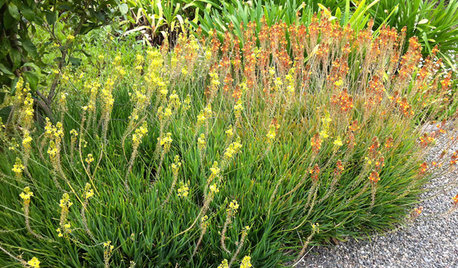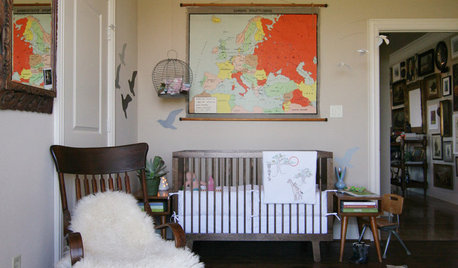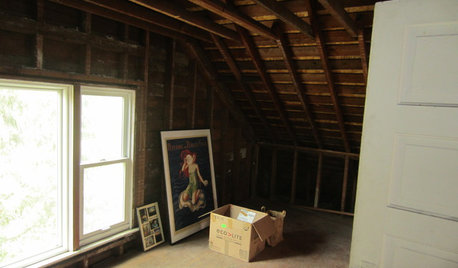Giant African Snail Watch in Maine?!
gardengardengardenga
19 years ago
Related Stories

GARDENING GUIDES6 Dependable Ground Covers for Warm Climates
Swap some lawn for these drought-tolerant clumping plants — and watch your maintenance efforts diminish while they easily grow
Full Story
GARDENING AND LANDSCAPINGHow to Make a Pond
You can make an outdoor fish paradise of your own, for less than you might think. But you'll need this expert design wisdom
Full Story
DECORATING GUIDES10 Popular Home Design Trends — Timely or Timeless?
Weigh in on whether these of-the-moment decorating elements will have staying power or become a memory of these times
Full Story
TROPICAL STYLEHouzz Tour: Say Aloha to Tropical Beachside Splendor
Mother-of-pearl walls set the stage for a Hawaiian paradise home that swims with laid-back glamour
Full Story
KIDS’ SPACESDream Spaces: 12 Disney-Worthy Kids’ Rooms
These fantasy bedrooms can transport children into a magical world of make-believe
Full Story
MOST POPULARMy Houzz: Open-Air Living in the Mountains of Bali
Community, jaw-dropping beauty and sustainability come together in a tropical paradise for a London expat
Full Story
LIVING ROOMSLiving Rooms That Don’t Revolve Around the TV
In these spaces, the television takes a back seat to conversation, relaxation and aesthetics
Full Story
DECORATING GUIDESHow to Get Your Furniture Arrangement Right
Follow these 10 basic layout rules for a polished, pulled-together look in any room
Full Story
Houzz Call: What Gives You the Creeps at Home?
Halloween horror got nothing on your basement, attic or closet? Show us that scary spot you steer clear of
Full Story
EDIBLE GARDENSHow to Grow Your Own Sweet Summer Crops
This guide will help any gardener get started on growing the freshest warm-season veggies and berries for summer
Full Story





The_Dollmaker
mikefrommaine
Related Professionals
Surprise Landscape Architects & Landscape Designers · Brentwood Landscape Architects & Landscape Designers · Forest City Landscape Architects & Landscape Designers · Arlington Landscape Contractors · Chesapeake Ranch Estates Landscape Contractors · Lewisville Landscape Contractors · Los Banos Landscape Contractors · North Chicago Landscape Contractors · Westchester Landscape Contractors · Irvington Landscape Contractors · Merrifield Landscape Contractors · St. Louis Siding & Exteriors · Somersworth Siding & Exteriors · Dent Stone, Pavers & Concrete · Winchester Center Stone, Pavers & ConcretegardengardengardengaOriginal Author